Alexander Lukashenko: Europe’s last dictator
Former pig farm manager dubbed Putin’s ‘little brother’ oversees a corrupt mafia state in Belarus
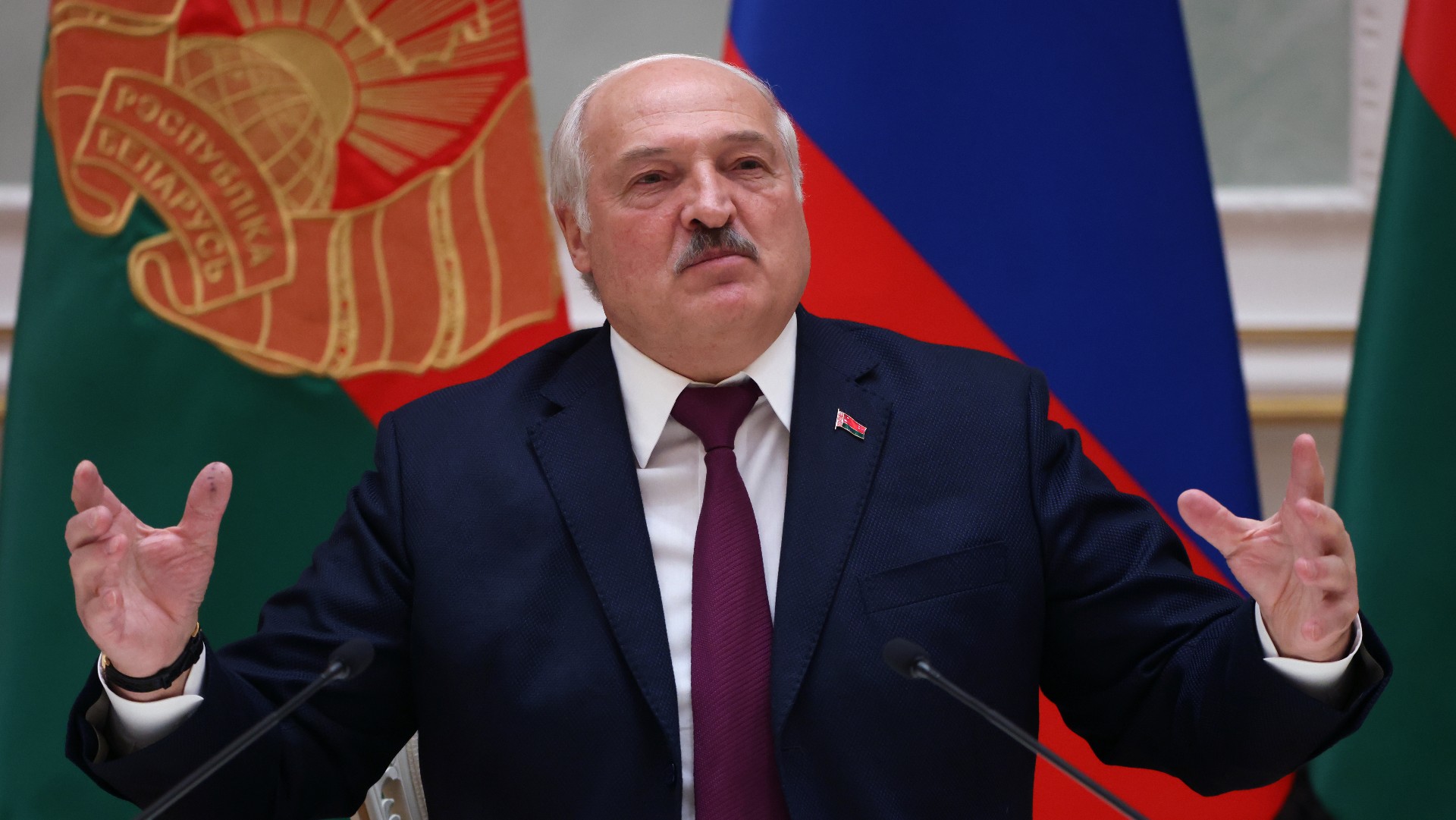
A free daily email with the biggest news stories of the day – and the best features from TheWeek.com
You are now subscribed
Your newsletter sign-up was successful
Vladimir Putin made a rare trip outside Russia this week, travelling to neighbouring Belarus for a meeting with the country’s authoritarian hardman president, Alexander Lukashenko.
Reuters reported that the two leaders “extolled ever-closer ties”, while “hardly mentioning the war raging in nearby Ukraine at a joint news conference” in Minsk on Monday.
The former Soviet states are already formally allied in a “somewhat nebulous ‘union’”, said the news agency. It warned that “Belarus’ political opposition, largely driven into jail, exile or silence, fears a creeping Russian annexation or ‘absorption’ of its much smaller Slavic neighbour which, like Russia, has been hurt by sweeping Western economic sanctions”.
The Week
Escape your echo chamber. Get the facts behind the news, plus analysis from multiple perspectives.

Sign up for The Week's Free Newsletters
From our morning news briefing to a weekly Good News Newsletter, get the best of The Week delivered directly to your inbox.
From our morning news briefing to a weekly Good News Newsletter, get the best of The Week delivered directly to your inbox.
Meanwhile, “the perception that Lukashenko, a pariah in the West, depends on Putin for his survival had fanned fears in Kyiv that Putin would pressure him to join a fresh ground offensive and open a new front in Russia’s faltering invasion of Ukraine”, said Reuters.
Who is Alexander Lukashenko?
“Although Lukashenko now appears firmly ensconced at the heart of the country’s Soviet-style establishment, a look at his early life reveals rather humbler origins,” said the BBC back in 2007 after he won a third stint as president following a referendum abolishing two-term limits.
Born in 1958, he was raised by his mother in a poor village in eastern Belarus, in what was then part of the Soviet Union. The manager of a collective pig farm in the 1980s “the story of Lukashenko’s rise to power in Belarus begins in 1990”, said Business Insider.
Then in his late 30s he held posts in the Soviet army and was a member of the Soviet communist youth wing, which helped him win election to a parliamentary seat in the Belarusian Soviet Socialist Republic.
A free daily email with the biggest news stories of the day – and the best features from TheWeek.com
Following the collapse of the USSR in 1991 and Belarusian independence, he was named head of the Belarusian parliament’s anti-corruption commission. Tapping into widespread public anger over the stripping of state assets by former party bosses, he attacked both “chaos” and “crooks” and campaigned to “take the country back from the abyss” in Belarus’s first presidential election in 1994 – winning over 80% of the vote. He has been in power ever since.
“Perhaps the best encapsulation of Lukashenko’s life might be one that he wrote about himself,” said Business Insider.
“My life, just like the lives of other presidents, is very busy. You wake up and keep running. What does it feel like to be on the run for 25 years? I got used to it,” said a quote from Lukashenko displayed on his official online biography.
“This hamster wheel keeps spinning, and there is no escaping it. If you stop, it will keep moving and throw you back. This is a mode of life. I am used to it,” he added.
He is still legally married to his high school sweetheart, Galina Zhelnerovich, with whom he has two boys, Viktor and Dimitry, although the couple have been estranged since the mid-1990s. He also fathered a son, Nikolai, in 2004 with a woman widely believed to be his personal doctor, Irina Abelskaya.
Back in 2014 when “Kolya”, as Nikolai is known, was just ten, he was already being touted as a future successor. The Independent reported the “next President of Belarus already has plenty of experience of the trappings of high office, having overseen military parades, sat in on Cabinet meetings, and met several world leaders when he accompanies his father, the current president Alexander Lukashenko, on trips abroad”.
'Europe’s last dictator'
Dubbed “Europe’s last dictator”, Lukashenko has, over his nearly three decades in power, created a cult of personality as the “Batka” – or father – of the Belarusian people and turned his country into a hugely corrupt “mafia state” tightly controlled and monitored by the secret police – still ominously called the KGB, said the BBC.
Setting out his political philosophy in 2003, he said: “An authoritarian style of rule is characteristic of me, and I have always admitted it. You need to control the country, and the main thing is not to ruin people’s lives.”
The New York Times put it like this in a November 2021 piece: “In a region buffeted by decades of authoritarianism, he has proved one of the most brutally tenacious leaders in the former Soviet Union, a one-man state, abetted by a powerful and menacing security apparatus and by the Kremlin, his sometime ally.”
“Armed with a rough rural accent”, Lukashenko initially styled himself as “a populist folk hero against a corrupt, immoral and bullying elite”, said the newspaper. He “still casts himself as the defender of the underdog” even as his government routinely harasses, jails and even tortures critics, arrests journalists and quashes independent media.
A key turning point came in summer 2020 when nationwide protests erupted after Lukashenko was widely accused of fixing the results of the presidential election. Despite declaring to have won 80% of the vote – giving him a sixth term in office – opposition figures claimed he had in fact lost.
According to Politico, more than 35,000 Belarusians were arrested during the subsequent uprising, with thousands facing abuse and torture in police custody.
In May 2021 Lukashenko sparked an international outcry after he ordered military aircraft to intercept a Ryanair flight travelling from Athens to the Lithuanian capital Vilnius. The plane was forced to land in Minsk where one of the passengers, Roman Protasevich, a blogger and activist who had been a fierce critic of the Lukashenko regime, was detained.
“In kidnapping a civilian airliner to silence a political opponent, Lukashenko has effectively taken his terror from the domestic to the international stage,” said Politico at the time.
The move further isolated Belarus from the West, which imposed increasingly restrictive sanctions, and forced the rogue state and its leader to forge an ever-closer alliance with Moscow and the man Lukashenko on Monday called his “elder brother” – Vladimir Putin.
-
 Trump reclassifies 50,000 federal jobs to ease firings
Trump reclassifies 50,000 federal jobs to ease firingsSpeed Read The rule strips longstanding job protections from federal workers
-
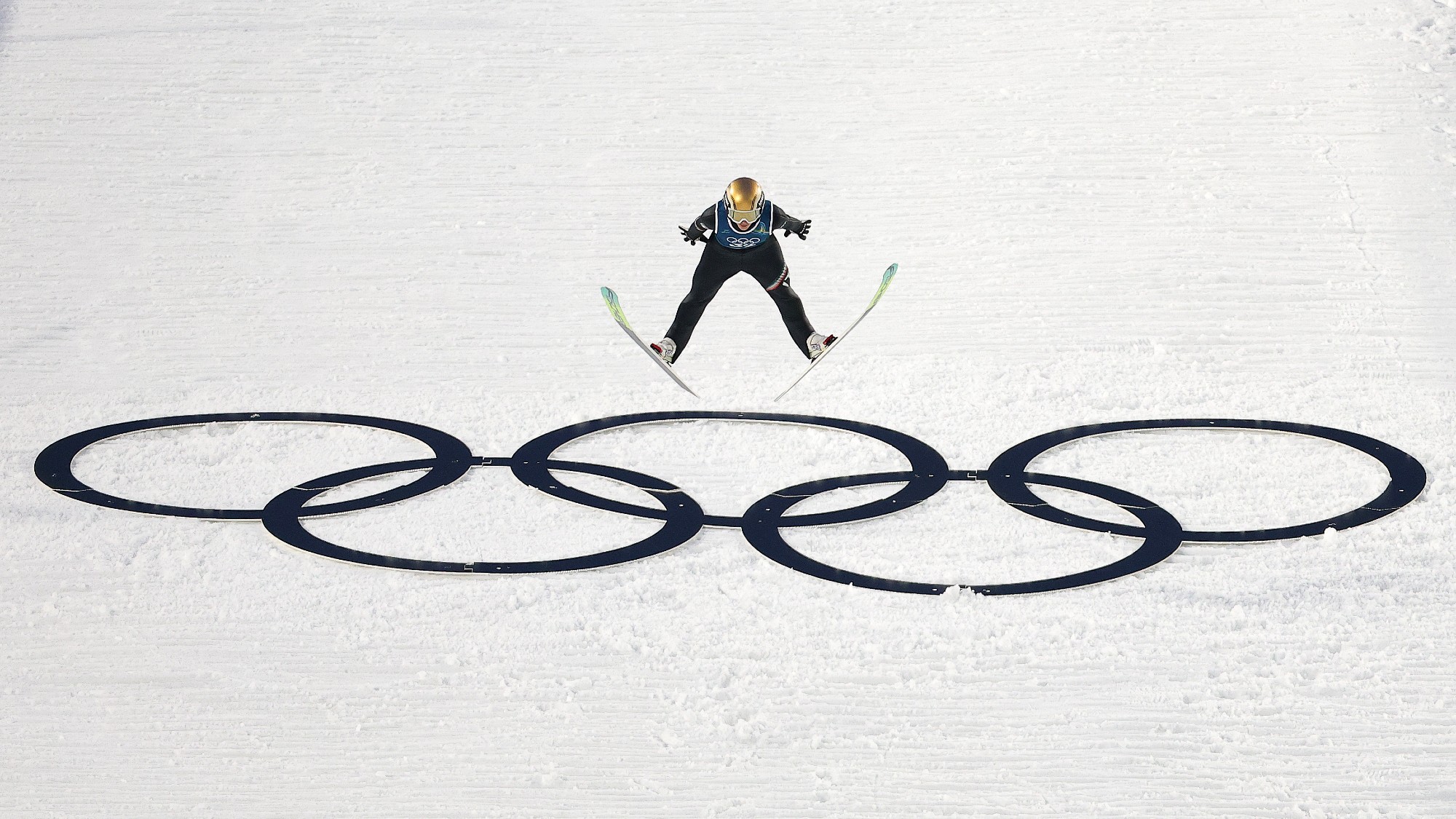 What to watch out for at the Winter Olympics
What to watch out for at the Winter OlympicsThe Explainer Family dynasties, Ice agents and unlikely heroes are expected at the tournament
-
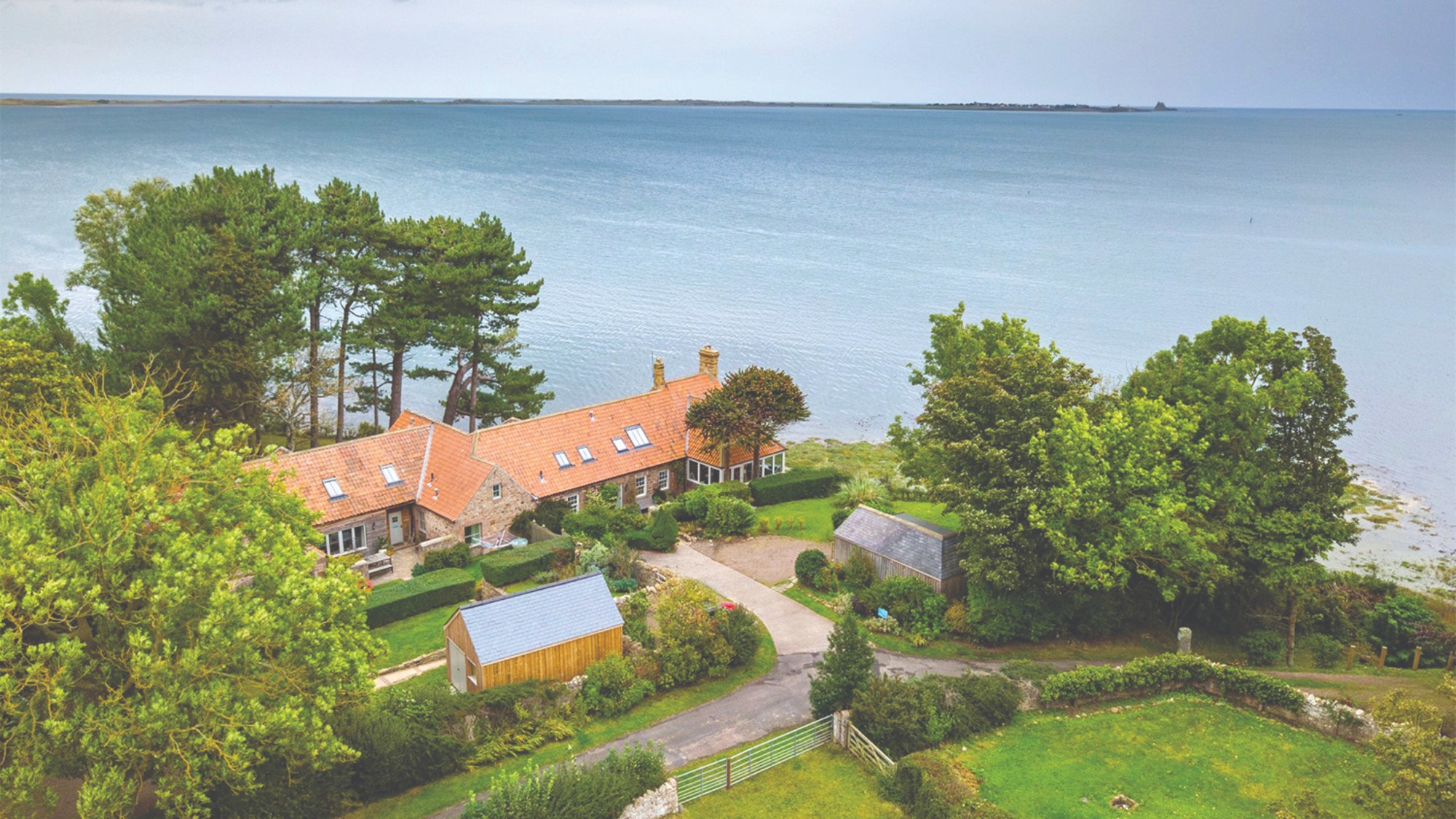 Properties of the week: houses near spectacular coastal walks
Properties of the week: houses near spectacular coastal walksThe Week Recommends Featuring homes in Cornwall, Devon and Northumberland
-
 Trump’s ‘Board of Peace’ comes into confounding focus
Trump’s ‘Board of Peace’ comes into confounding focusIn the Spotlight What began as a plan to redevelop the Gaza Strip is quickly emerging as a new lever of global power for a president intent on upending the standing world order
-
 The high street: Britain’s next political battleground?
The high street: Britain’s next political battleground?In the Spotlight Mass closure of shops and influx of organised crime are fuelling voter anger, and offer an opening for Reform UK
-
 Trump considers giving Ukraine a security guarantee
Trump considers giving Ukraine a security guaranteeTalking Points Zelenskyy says it is a requirement for peace. Will Putin go along?
-
 Vance’s ‘next move will reveal whether the conservative movement can move past Trump’
Vance’s ‘next move will reveal whether the conservative movement can move past Trump’Instant Opinion Opinion, comment and editorials of the day
-
 What have Trump’s Mar-a-Lago summits achieved?
What have Trump’s Mar-a-Lago summits achieved?Today’s big question Zelenskyy and Netanyahu meet the president in his Palm Beach ‘Winter White House’
-
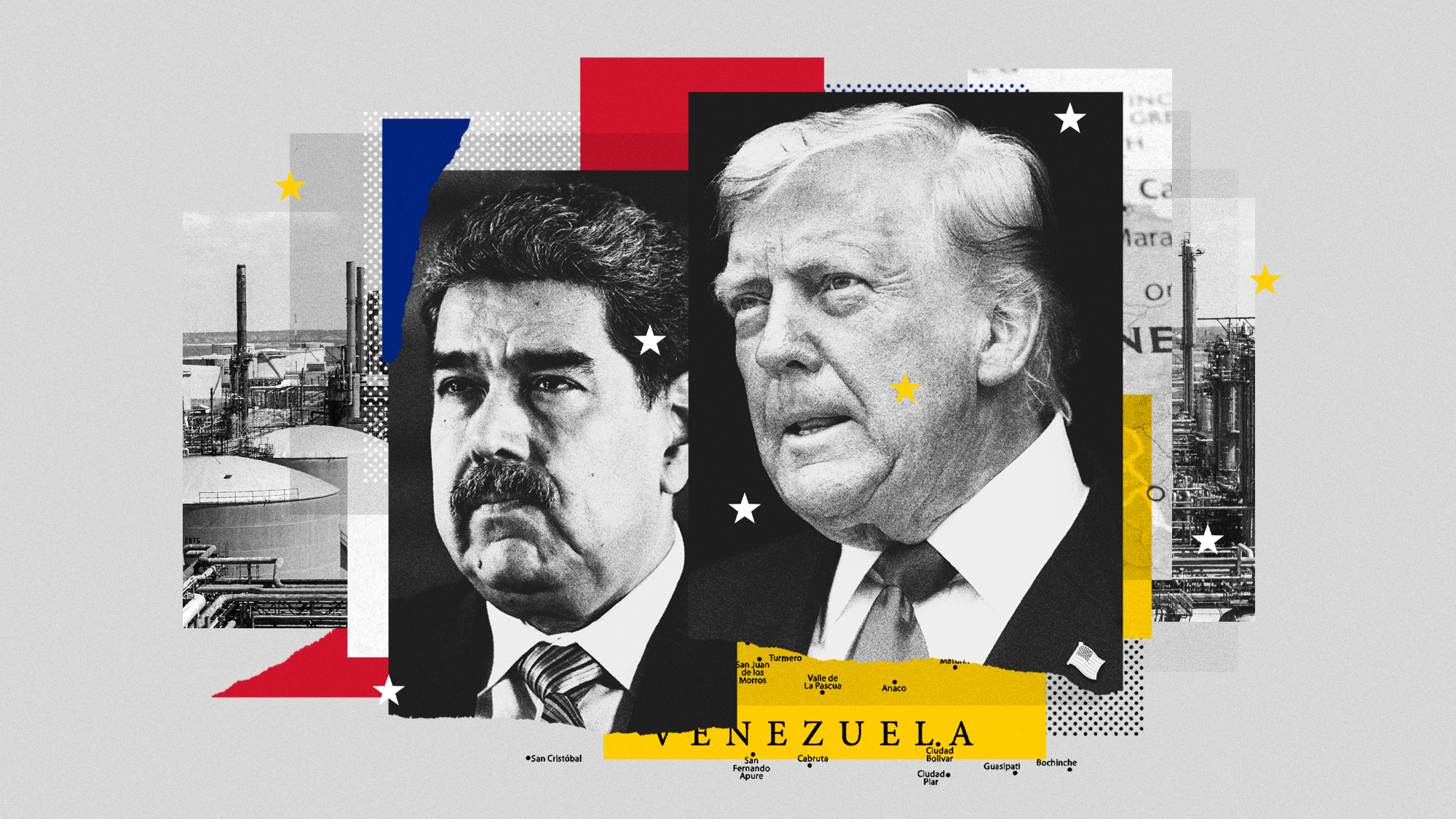 Why, really, is Trump going after Venezuela?
Why, really, is Trump going after Venezuela?Talking Points It might be oil, rare minerals or Putin
-
 Who is paying for Europe’s €90bn Ukraine loan?
Who is paying for Europe’s €90bn Ukraine loan?Today’s Big Question Kyiv secures crucial funding but the EU ‘blinked’ at the chance to strike a bold blow against Russia
-
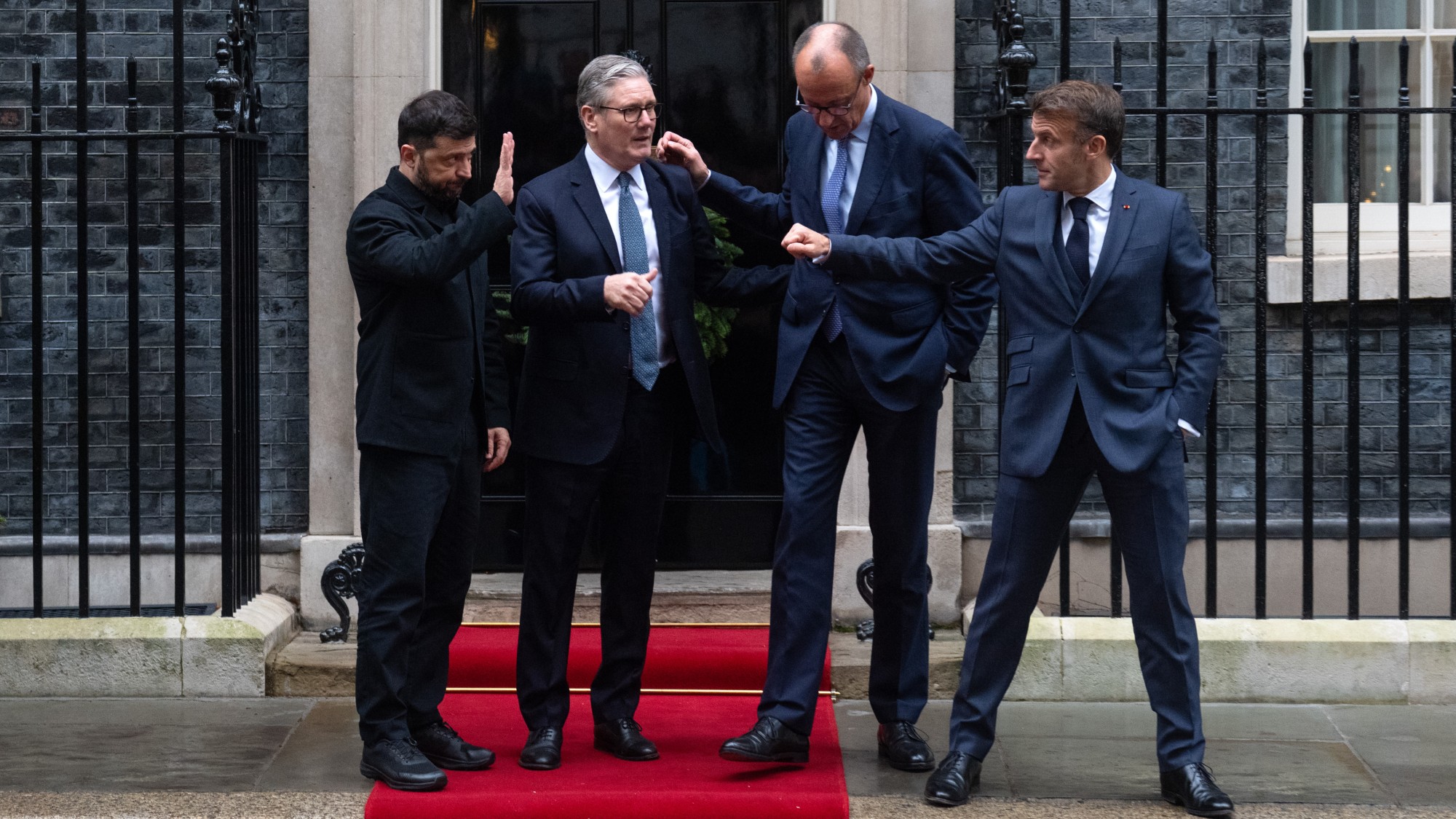 Will there be peace before Christmas in Ukraine?
Will there be peace before Christmas in Ukraine?Today's Big Question Discussions over the weekend could see a unified set of proposals from EU, UK and US to present to Moscow